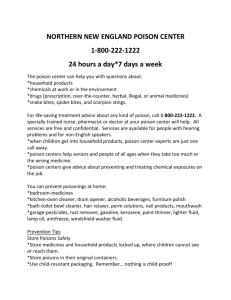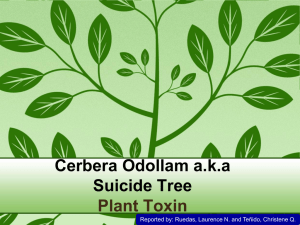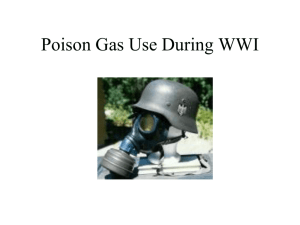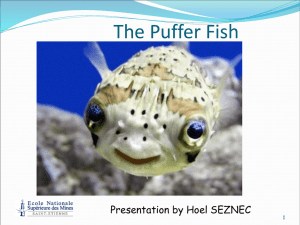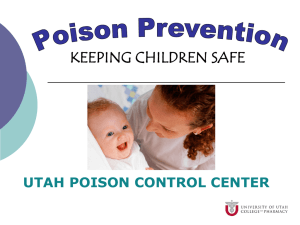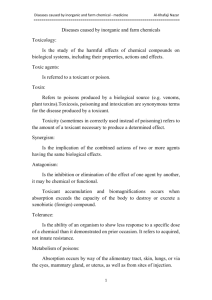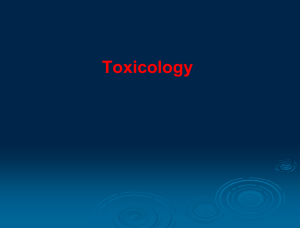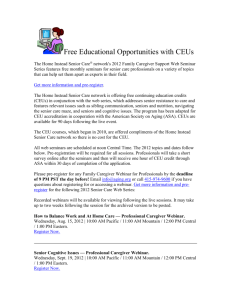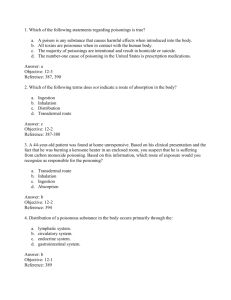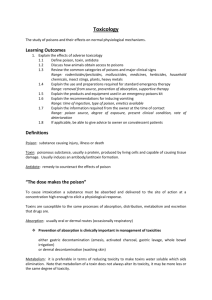PRESENTATION NAME - Utah Poison Control Center
advertisement
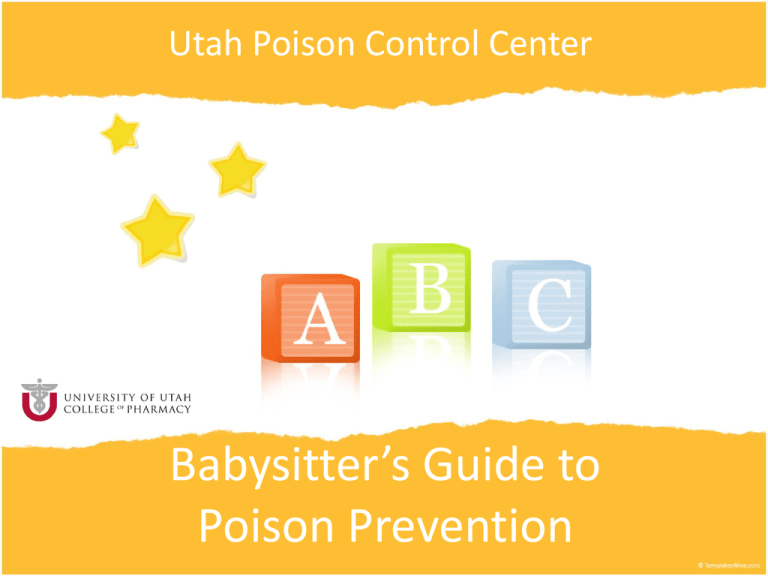
Utah Poison Control Center Babysitter’s Guide to Poison Prevention What is a Poison? • Anything someone eats, breathes, gets in the eyes or on the skin, which can cause sickness or death if it gets into or on the body. • Poisons come in different forms – Solid – Liquid – Gas/Spray The Poison Problem • Utah Poison Control receives more than 50,000 calls each year • About 60% of poisonings involve children who are less than 6 years old • Most poisonings happen at home • Every 30 seconds a child is poisoned in the U.S. Poisons are Everywhere • Laundry area – Bleach, laundry detergent, spot remover • Garage/basement/storage area – Gasoline, weed killer, antifreeze, pesticides • Outside – Plants, mushrooms • Kitchen – Cleaners, detergents, medicine • Bathroom – Cosmetics, medicine, mouthwash, hair products • Bedroom – Jewelry, Plants, medicine What is Poisoning Kids? • Cosmetics and Personal Care Items – Mouthwash, toothpaste, nail products, perfume, shampoo, make-up etc. • Medicine and Vitamins – Pain medicine, cough and cold medicine, vitamins, medicine for upset stomach What is Poisoning Kids? Cont. • Household Cleaners – Bleach, drain and toilet bowl cleaner, laundry products, window cleaner, dish detergent, oven cleaner etc. • Topicals – Diaper rash cream, acne medicine, cortisone cream, athletic rub • Foreign Bodies – Coins, button batteries, small magnets Things Look alike! Why are Kids at Risk? • Child’s curious nature – Explore, taste, and touch to learn • Improper storage – Poisons within the reach of children • Caregiver distractions – Telephones, doorbells, meal preparation, etc. – Most poisonings occur when the product is in use Lets Prevent Poisonings! • • • • • Keep poisons out of the reach of children Do not leave children alone or unattended Be aware of all possible hazards in the home There is no such thing as “child proof” Teach children to ask first before putting anything in their mouth • Never call medicine candy What if Someone is Poisoned? • Stay calm, but don’t wait for the person to look or feel sick; some poisonings have delayed effects • If the person is unconscious, having convulsions, or difficulty breathing; call 911 • Otherwise call poison control at: 1-800-222-1222 First Aid for Poisoning • Swallowed poison – do not give anything, call the poison control center • Inhaled poison – get victim to fresh air, call poison control center • Poison on skin – remove contaminated clothing and rinse skin with water for 10 minutes, call the poison control center • Poison in eye – flush eye for 15 minutes using a large cup filled with lukewarm water held 2-4 inches from eye, call the poison control center Calling Poison Control • Questions the UPCC specialist may ask: – How the person is feeling or acting – Age and weight of person – Name/description of medicine, product or plant (have container with you) – Amount taken – When it happened – Name and phone number Poison Control is… • • • • Free and confidential Available 24/7 every day of the year The place to call for poison help Staffed by nurses and pharmacists who answer the phones and want to help you • Don’t be afraid to call! Only the people helping you will know your name. Conclusion • Poisons are all around us. We come in contact with them every day. • Awareness and simple safety precautions can help keep the kids we care for safe • Take action—check the house for possible dangers • Never hesitate to call Utah Poison Control for help
